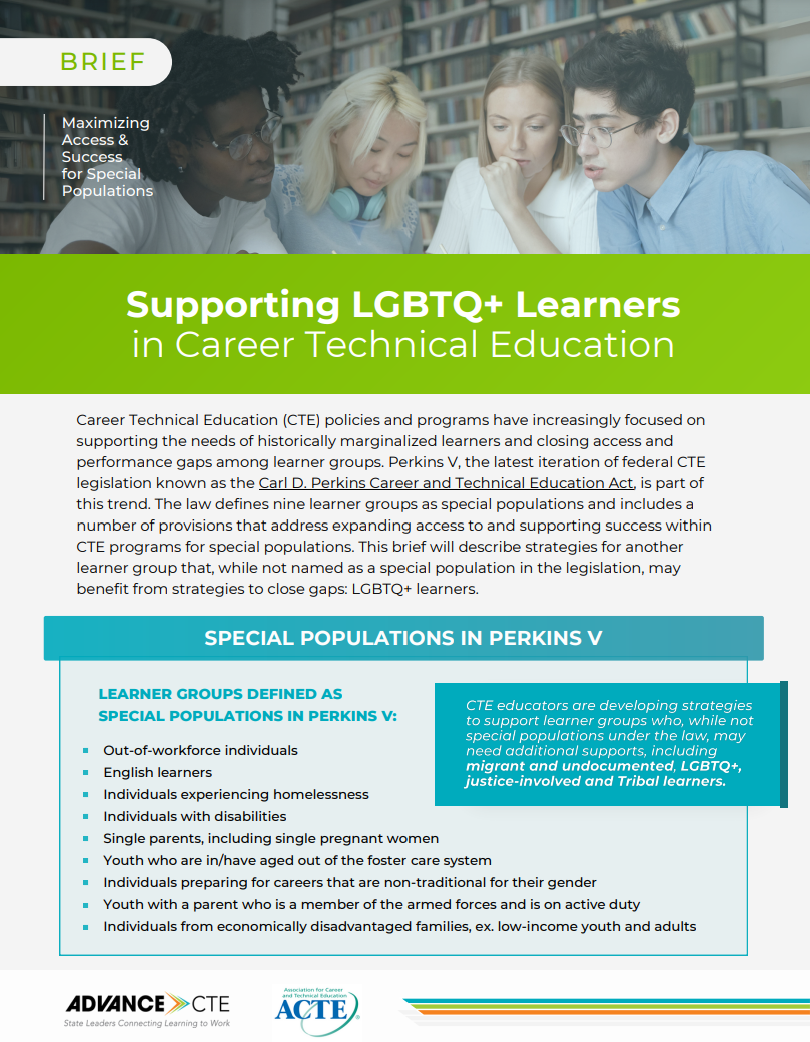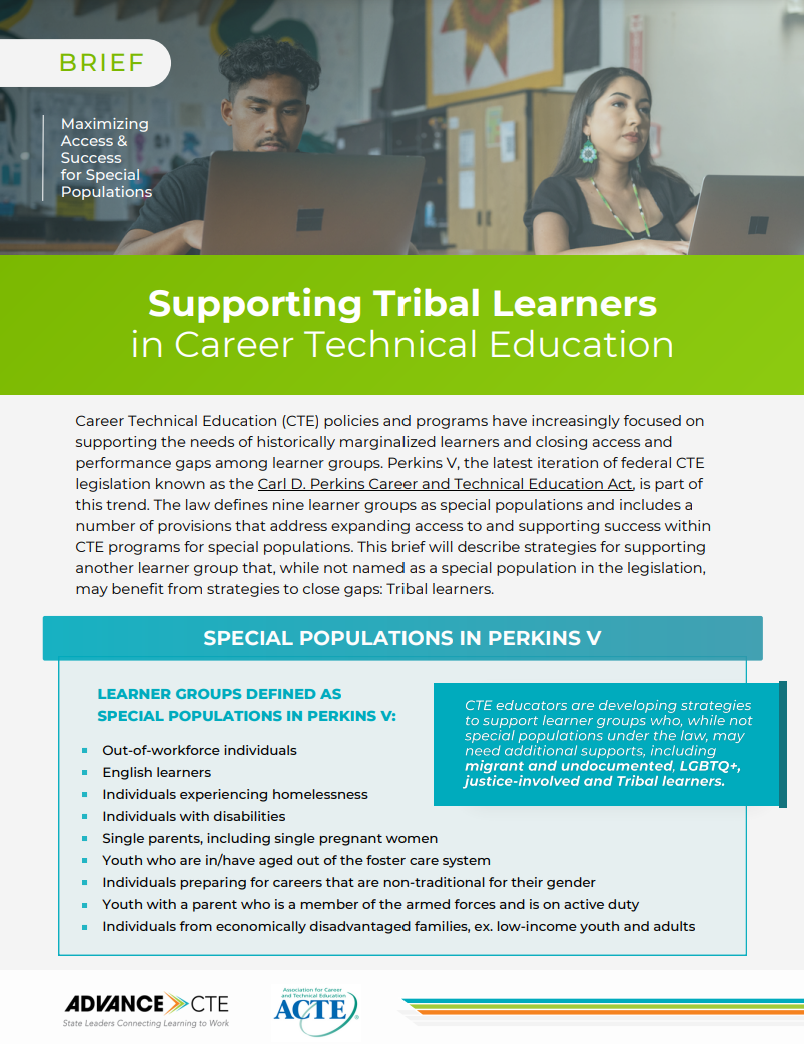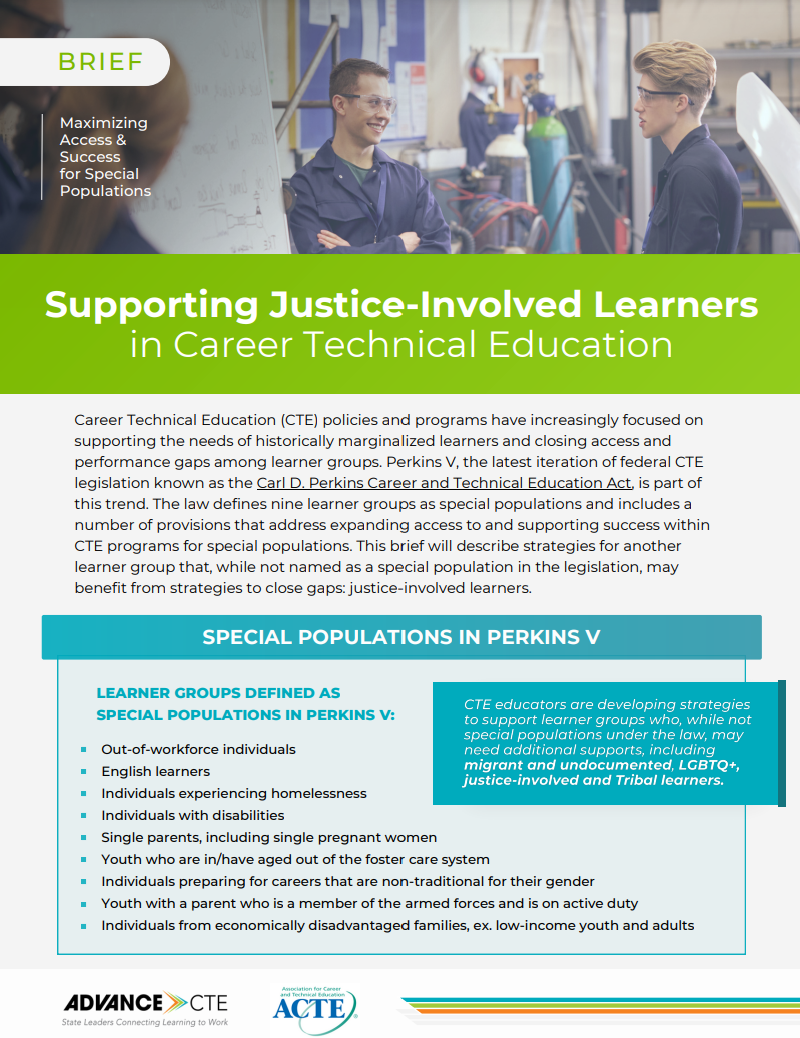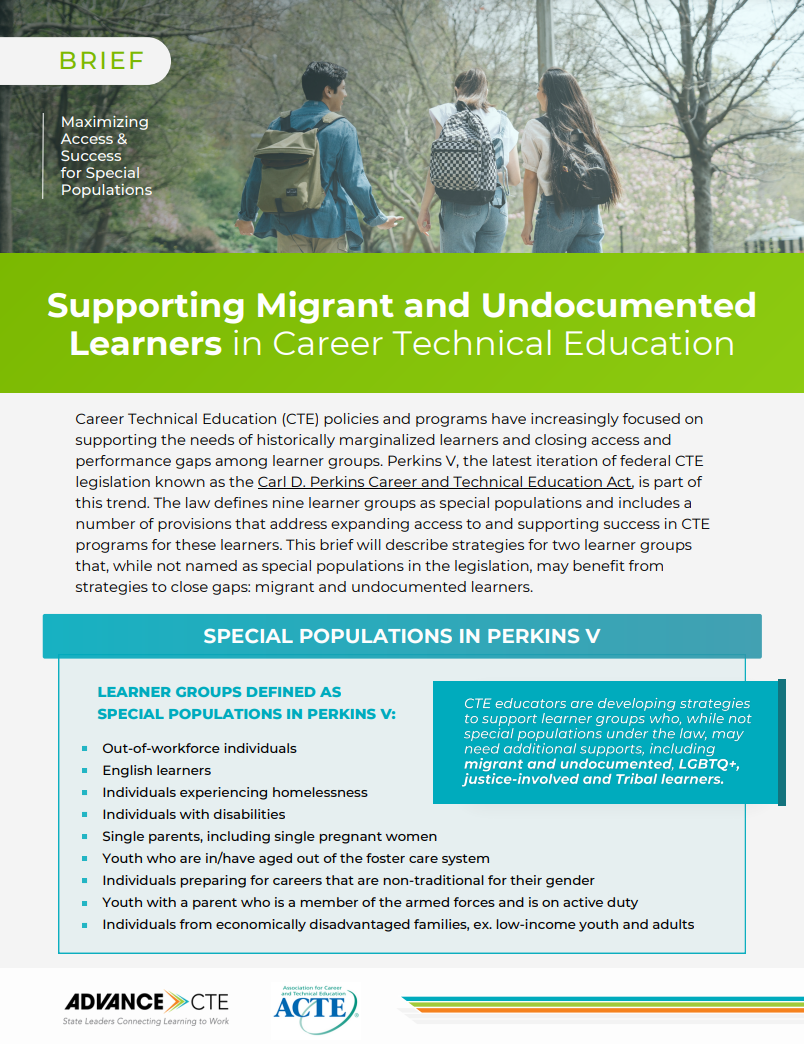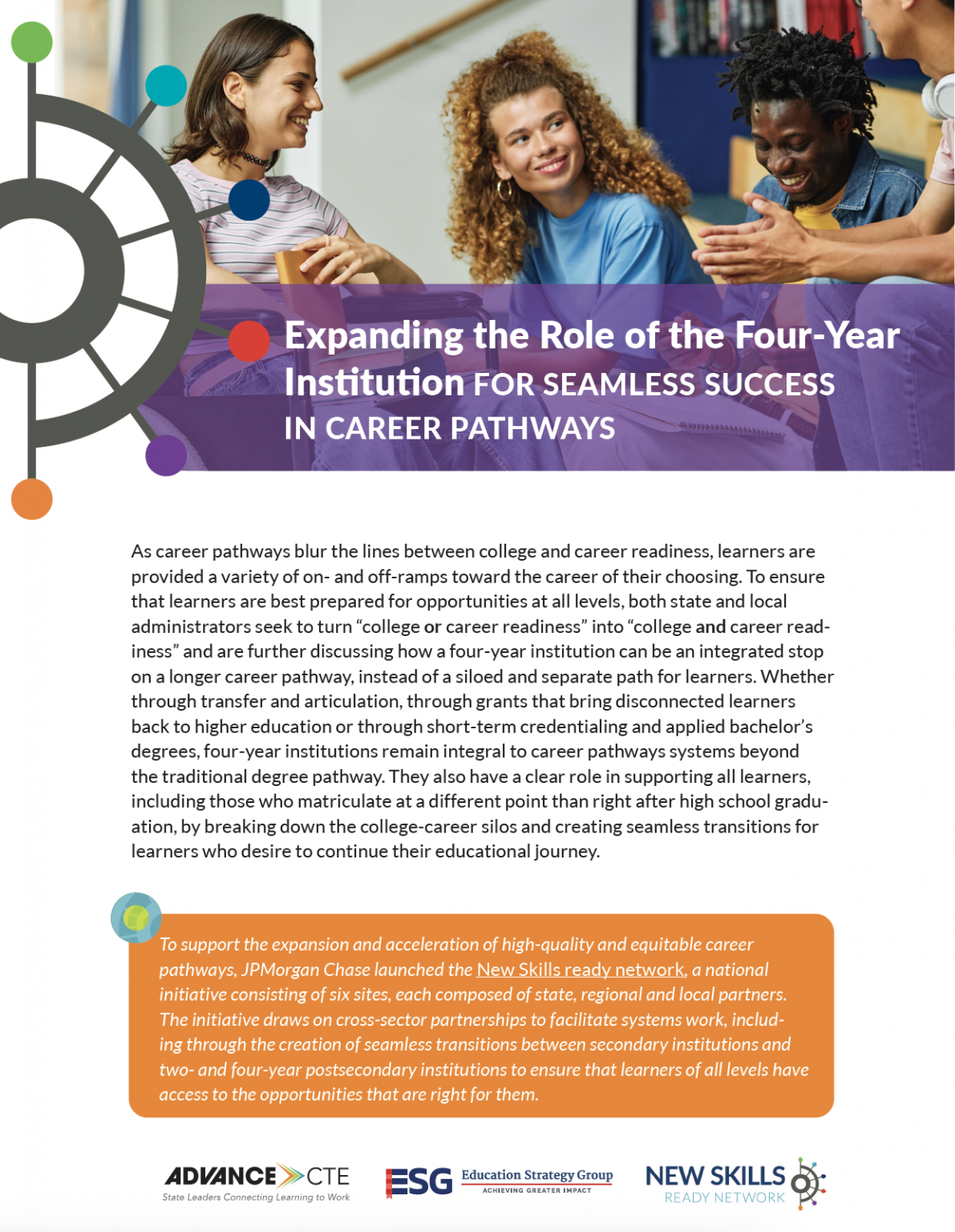
Expanding the Role of the Four-Year Institution For Seamless Success in Career Pathways
This brief highlights the challenges facing postsecondary administrators in facilitating seamless transitions between institutions; three major categories of strategies used at both the state and local levels to overcome those challenges and ensure that learners can seamlessly transition between and across institutions; state and local examples of successful policies and initiatives that support these learners; and policy and institutional recommendations for engaging partners and policymakers for further integrating four-year institutions in career pathways.

